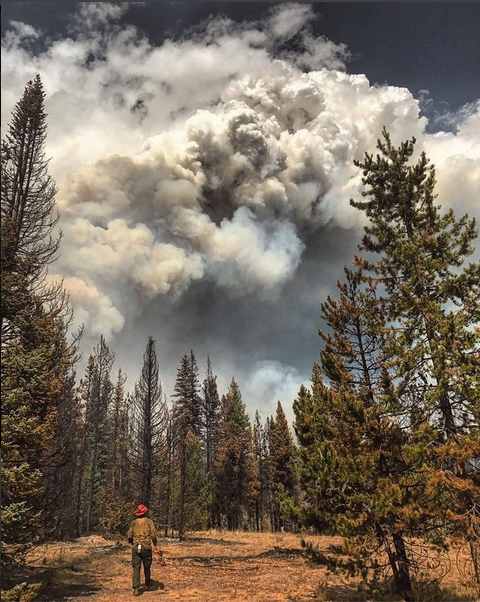
The Job: Wildland Firefighter sometimes listed on USAjobs as Forestry Aide (Fire), Forestry Technician (Wildland Firefighter), or Range Technician (Wildland Fire).
The Location: Anywhere prone to fires. In short, EVERYWHERE. Wildland firefighters can be based in one location, but are constantly being dispatched out to fires around the country.
The Schedule: As a Wildland Firefighter, expect to be working a lot and making a lot of overtime. Usually seasons are short which helps with the burnout of working so much. There is no set schedule and oftentimes you go weeks without a day off. Hand Crews work 14-21 day rolls of sixteen-hour days. Engine crews try to stick to the five days on two days off schedule, but again, in fire season, all bets are off. Helitack crews operate 7 days a week.
Experience Required: There are of course classes and certifications involved, but the main experience you need for this job are going to be manual labor and backcountry sills.
The Duties: The main duty of a wildland firefighter is digging lines –which is basically digging down to the mineral soil and removing fuels from the edge of a fire. Once the fire is out, you are in charge of mopping it up. This means that you are finding all leftover hot spots and putting dirt and water on them until they are extinguished. Other duties include, putting hose in water, setting up buckets for helicopters, and chainsaw project work.
This job is for you if: You enjoy camping, working a lot, and making lots of money in a short amount of time.
This job is not for you if: You need showers, you don’t like dirt or heat, if you enjoy personal time, if you don’t like smoke, if you don’t like feeling uncomfortable.
The most frustrating part of the job: Lots of hurry up and waiting, lots of standing by, not a ton of free time, two or more weeks without showers or cell service while constantly working.
The most rewarding part of the job: Knowing that you are saving peoples lives, properties, and livelihoods. The gratitude of local communities is something that sticks with you long after fire season is over.
